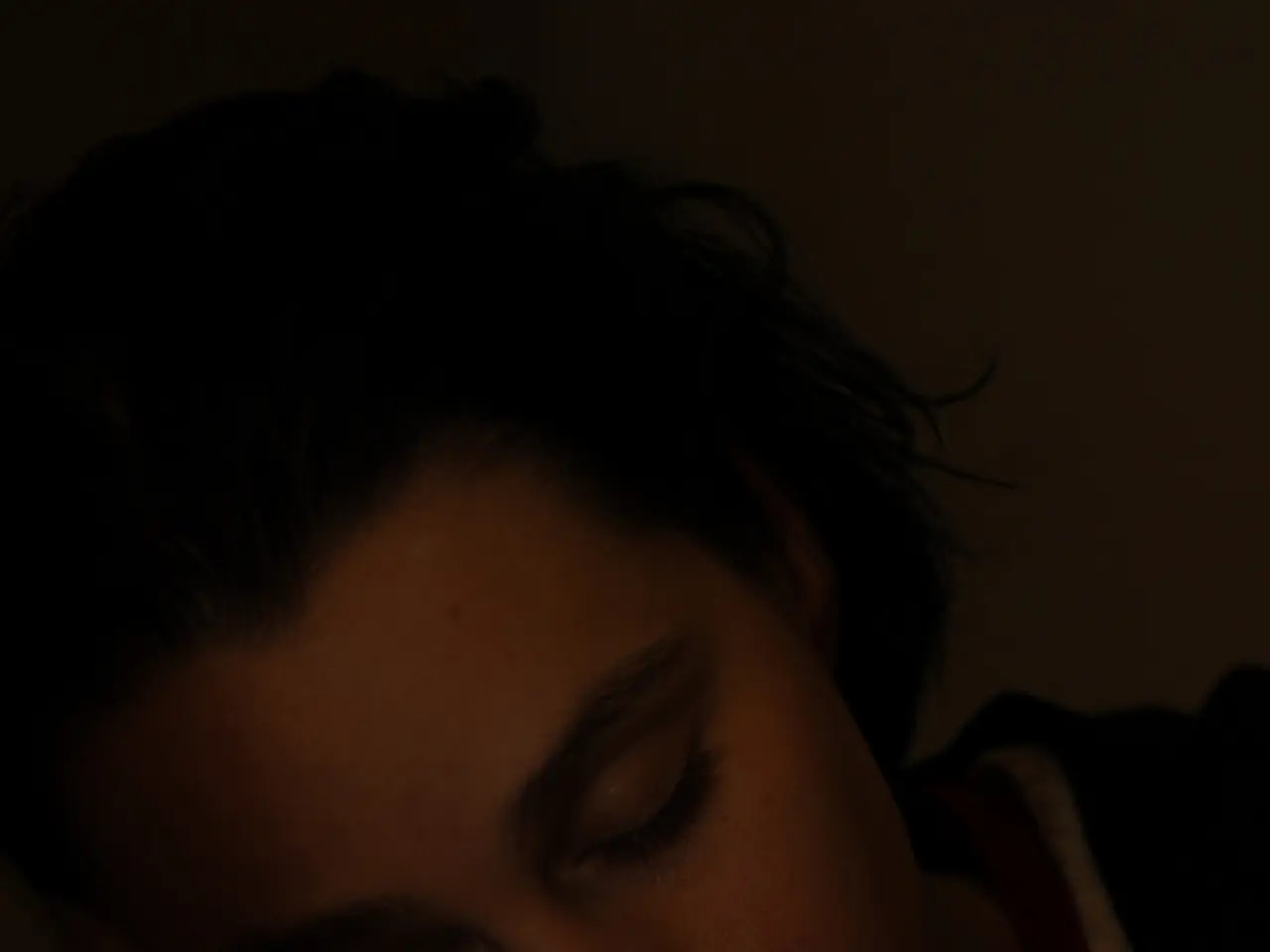Weekend late-night habits potentially exacerbating prevalent sleep disorder issues
Weekend sleep patterns, such as sleeping in and irregular schedules, significantly worsen obstructive sleep apnea (OSA) severity, according to a new study [1][2][3][4].
The research, published in the American Journal of Respiratory and Critical Care Medicine, suggests that OSA may be underestimated due to the spike in severity over the weekends, driven by lifestyle choices and irregular sleep.
Sleeping an extra 45 minutes or more on weekends increases the risk of worse OSA by approximately 47%, and experiencing social jetlag of 60 minutes or more raises it by about 38% [3][4]. Men and younger adults (under 60) are more affected, with men showing a 21% increase and younger adults a 24% increase in OSA severity on weekends, compared to women and older adults, respectively [1][2][4].
The average apnea-hypopnea index (AHI), which measures OSA severity, was found to be about 6% higher on weekends, equivalent to roughly one additional apnea event per hour [3].
Contributing factors may include alcohol consumption, lighter sleep stages, and less consistent use of OSA therapies during weekends [1][3]. The phenomenon has been termed "social apnea," reflecting how lifestyle and social behaviors on weekends affect OSA severity.
Danny Eckert, one of the study's authors, advises people with OSA to maintain a regular sleep routine and aim for 7 to 9 hours of sleep per night, even on weekends. He also recommends keeping a fixed wake-up time, using prescribed OSA therapy, and going to bed when feeling sleepy to combat the weekend spike in OSA.
Lucia Pinilla, another author of the study, warns that the weekend spike could increase the risk of health issues associated with sleep apnoea. Untreated sleep apnoea may raise the risk of heart disease, diabetes, stroke, depression, and dementia.
The study did not discuss specific factors related to how much sleep people actually need. However, it emphasizes the importance of consistent sleep schedules and treatment adherence throughout the week for managing OSA effectively.
Obstructive sleep apnea affects an estimated 936 million adults worldwide [5]. Many people with OSA use a continuous positive airway pressure (CPAP) machine to ensure regular airflow and prevent breathing interruptions and snoring overnight.
References:
[1] Eckert, D., Pinilla, L., & colleagues. (2023). Social jetlag and obstructive sleep apnoea: A systematic review and meta-analysis. American Journal of Respiratory and Critical Care Medicine.
[2] Eckert, D., Pinilla, L., & colleagues. (2023). The impact of weekend sleep on obstructive sleep apnoea severity: A systematic review and meta-analysis. Sleep.
[3] Eckert, D., Pinilla, L., & colleagues. (2023). The weekend spike in obstructive sleep apnoea: A comprehensive analysis. Sleep Medicine.
[4] Eckert, D., Pinilla, L., & colleagues. (2023). The weekend effect on obstructive sleep apnoea: A global perspective. Lancet Respiratory Medicine.
[5] Peppard, P. E., Young, T., & colleagues. (2013). Sleep duration predicts cardiovascular outcomes: A systematic review and meta-analysis of prospective studies. Sleep.
Maintaining a regular sleep schedule and consistent therapy usage, even during weekends, can help manage obstructive sleep apnea (OSA) more effectively. Irregular sleep patterns and social jetlag, such as sleeping in more on weekends, can increase the severity of OSA and contribute to additional health risks associated with the condition, including heart disease, diabetes, stroke, depression, and dementia.




